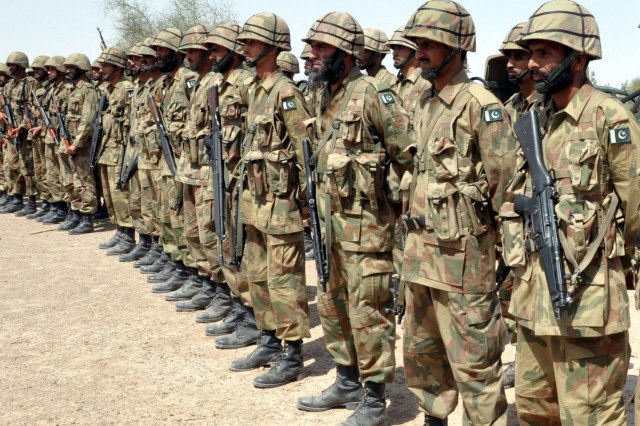Rights abuses: US raps Pakistan’s ‘culture of impunity
US State Department says security forces operating outside the writ of the civilian government.

Rights abuses: US raps Pakistan’s ‘culture of impunity
The US State Department said on Friday that Pakistan had a “culture of impunity” on human rights abuses which often encouraged security forces to operate outside the control of the civilian government.
In its annual survey on human rights the State Department reported widespread concerns in Pakistan including violence against women, child labour, corruption and discrimination against religious minorities.
The criticism came days after the release of a White House report claiming that Pakistan was avoiding direct conflict with the militants in the tribal areas and that it still had no “ clear path” to defeat militants on its soil.
The report said Pakistan had not held anyone accountable for a 2009 incident — shown in a leaked video — in which men in military uniforms shot dead six young men who were lined up and blindfolded with hands behind their backs. Neither were the conclusions of the investigation publicly announced, it said.
Days after this video surfaced on the Internet, it noted another video emerged showing men in military uniforms beating prisoners in a remote location.
“A failure to credibly investigate allegations, impose disciplinary or accountability measures and consistently prosecute those responsible for abuses contributed to a culture of impunity,” the report said.
The State Department report was blunt about the persistent power of the armed forces. “Security forces did not report to civilian authorities and operated independently from the civilian government,” it said. Some of the bluntness about the security forces is attributed to the strained ties between the two allies following the detention of CIA operative Raymond Davis in Lahore.
There were several reports that “the government or its agents committed arbitrary or unlawful killings”.
“Politically motivated killings and societal violence, including killings by angry mobs, continued. There were reports of extra-judicial killings in connection with conflicts in the Federally Administered Tribal Areas (Fata) and Khyber-Pakhtunkhwa.”
Nationalist leaders as well as government figures in Balochistan also remained targets of attacks during the year. The elected civilian government, especially the coalition partner Awami National Party (ANP) in Khyber-Pakhtunkhwa, was one of the targets. The State Department also said that there were reports of politically motivated killings in Karachi.
It also pointed out that politically motivated disappearances continued during the year. “There were reports of disappearances in nearly all areas of the country. Some police and security forces held prisoners incommunicado,” it said. Many Sindhi and Baloch nationalists were among the missing. There were also reports of disappearances during the year in connection with the conflicts in Fata and Khyber-Pakhtunkhwa.
The report took note of government efforts to improve human rights, including a new law against sexual harassment and the allocation of reserved seats in parliament for religious minorities.
But the report said that women spoke of rape in custody, with few perpetrators held to account, and said that women and girls were often subjected to abuse or “honour killings” as part of family disputes.
“Women often were treated as the property or goods of their families, and perpetrators were often husbands and other male family members,” it said.
The law prohibits torture and other inhuman treatment, but there were reports that security forces tortured and abused individuals in custody. “There were accusations of security forces raping women during interrogations. The government rarely took action against those responsible.”
During the year there were reports of civilians kidnapped or taken hostage by militant groups in Fata, Khyber-Pakhtunkhwa, and Balochistan.
The report also said that religious minorities — namely Christians and Ahmadis —were more likely to suffer abuse in prison and reported cases of torture in custody. AFP
with additional input from the news desk)
Published in The Express Tribune, April 9th, 2011.



















COMMENTS
Comments are moderated and generally will be posted if they are on-topic and not abusive.
For more information, please see our Comments FAQ